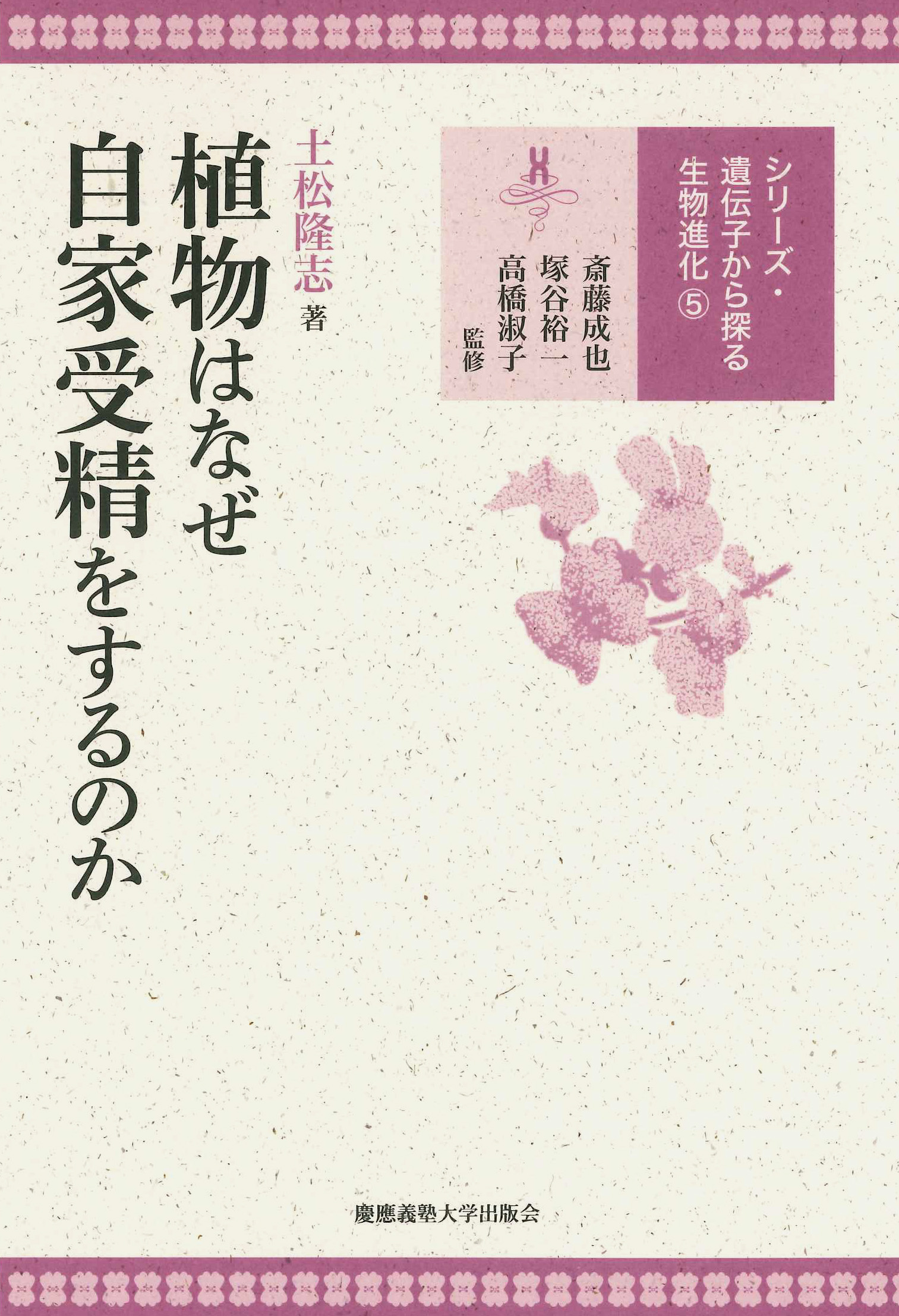Disclaimer: machine translated by DeepL which may contain errors.
Why do plants self-fertilize?
Soichi Inagaki, Associate Professor, Department of Biological Sciences

| Takashi Tsuchimatsu |
| Why do plants self-fertilize? |
|
Keio University Press (2017) |
| isbn 978-4-7664-2299-3 |
Many organisms, including ourselves, leave offspring through sexual reproduction. It is well known that reproduction with a genetic partner that is too close to the offspring results in poor growth and fertility, but strangely enough, many plants are self-fertilized, that is, fertilized by pollen and egg cells produced within the same individual. This may seem contradictory at first glance, but many plants have evolved to self-fertilize. On the other hand, plants that do not self-fertilize have a system called "self-incompatibility" that prevents fertilization between genetically close individuals, including themselves.
This book has two faces. The first is a detailed and vivid description of the research on the evolution of self-fertilizing Arabidopsis thaliana from its ancestral species, which originally had a self-incompatibility system, and how it evolved at the DNA level. The second is a very informative account of how the author, Dr. Tsuchimatsu (currently Professor in the Department of Biological Sciences), began his research career at The University of Tokyo, why he started research on self-fertilization, his research life in Zurich and Vienna, and how his papers were published. The book contains very useful information for those who want to become a researcher in the future. Both scientific descriptions and descriptions of the thoughts and lives of researchers are very vividly described.
Personally, I was interested in the sections on the Walter Fitch Prize and on the process from the analysis of the "1001 Genomes" to the discovery of the "Neanderthal" Arabidopsis thaliana. This is a book that will make you want to step into genome evolution and evolutionary ecology.
Published in the May 2023 issue of Faculty of Science News


